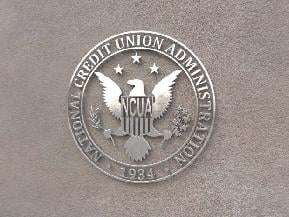ARLINGTON, Va. – Overall in the U.S. credit card purchases are safe – the statistics tell that story. Very few cardholders are probably aware of the array of technology and people that stand behind every credit card transaction, working to keep it secure. Certegy, the card processor based in Alpharetta, Georgia, processes the credit card and signature debit card transactions for over 6,000 financial institutions, roughly 4,000 of them credit unions, according to the firm. “We experience about 1,200 fraud cases a month,” said Melinda Stickley, vice president of customer service for the processor, and thousands of cases of dispute resolution, a category which is sometimes confused in the cardholder’s mind. “The basic difference between a fraud and a dispute is whether the cardholder took part in the transaction,” Stickley said. If the cardholder took part in the transaction, and something was wrong with the product or service, then that is a matter of dispute and both VISA and MasterCard have appropriate procedures we can follow for dealing with it, she explained. “But if a charge appeared and the cardholder did not take part in the transaction, then that is a fraud,” she said. PSCU Financial Services, the St. Petersburg, Florida firm that processes card transactions for about 500 credit unions also recognizes the distinction between fraud and dispute. In PSCU’s case a formal fraud investigation requires an affidavit from the cardholder to get started. The action of filling out the affidavit prompts the cardholder to be certain that the charge in question is not just a disputed charge but an actual case of fraud, said Steve Railey, executive director of PSCU. The distinction is important because as soon as the affidavit is filed the account is closed to new transactions, a new account number is generated and a new card is requested. Any activity that comes into the account after the account is closed is shifted to the new account, but if any of the incoming transactions are also judged to be fraudulent they are returned to the old account for further investigation and processing. “Our goal is to make sure the cardholder’s record is clean of fraudulent transactions,” Railey said. Once the fraud is confirmed, one of PSCU’s 45 staff members dedicated to fraud work with the card associations and merchants works to get back the financial institution’s money. Despite having a relatively small size, Railey expressed pride that the staff had been able to recover $12 million of their member shareholders’ money initially lost to fraud. But recovery success aside, both processors agreed that if they close an account because of a fraud complaint, their sophisticated fraud detection system has failed. Both PSCU and Certegy employ a software product called Falcon to monitor their members’ card activity and attempt to prevent fraud. Falcon is what is called a “neural network” meaning that it evaluates incoming data in real time and can make decisions about transactions as the transactions are happening. As a transaction comes in to be authorized, Falcon compares that transaction to a cardholder’s previous transactions on hundreds of criteria. The criteria can range from amount of the transaction and the merchant at which the transaction is being made to time of day, geographic location of the transaction, type of transaction it is, and whether the cardholder has purchased similar products or services in the past. Based on these types of criteria, each of the transactions is given a “risk score” and transactions with over a certain score are sent to a fraud employee who will generally attempt to contact the cardholder to verify the transaction. The system works well enough that the average fraud case that PSCU handles is under $100 and each incident of fraud is usually for under $50 dollars, Railey said. Fraudsters know about systems like Falcon and they know they are more likely get away with it if they keep the transaction size low, Railey added. “But getting hit with lots of small frauds can do as much damage as getting hit by a big one,” he said. By way of contrast, Certegy said its fraud amounts tended to be higher, but attributed that in part to having banks in its processing pool as well as credit unions. Banks’ card transactions are generally higher in value than credit unions’ card transactions, Stickley said, so the fraud is likely to be of higher value as well. Certegy also employs five anti-fraud employees whose task is to help tighten the organization’s fraud fighting activity overall. This investigators’ team does everything from help credit unions react to patterns of fraud among their cardholders transactions to helping the organization recognize patterns of fraud across the entire card base which can indicate a crime ring operating or some sort of organized fraud effort. “A few cases of similar fraud at one institution is an incident,” Stickley said, “but similar frauds at five institutions can indicate a trend or a ring operating,” she said. [email protected]




 Copyright © 2024 ALM Global, LLC. All Rights Reserved.
Copyright © 2024 ALM Global, LLC. All Rights Reserved.










